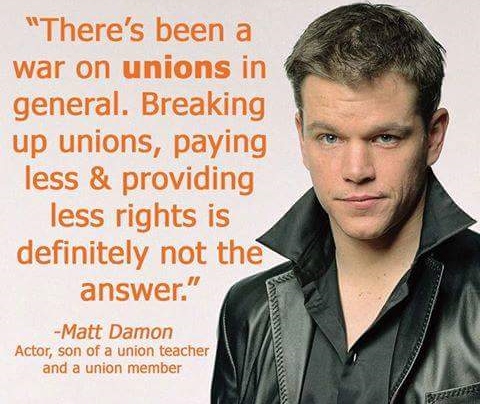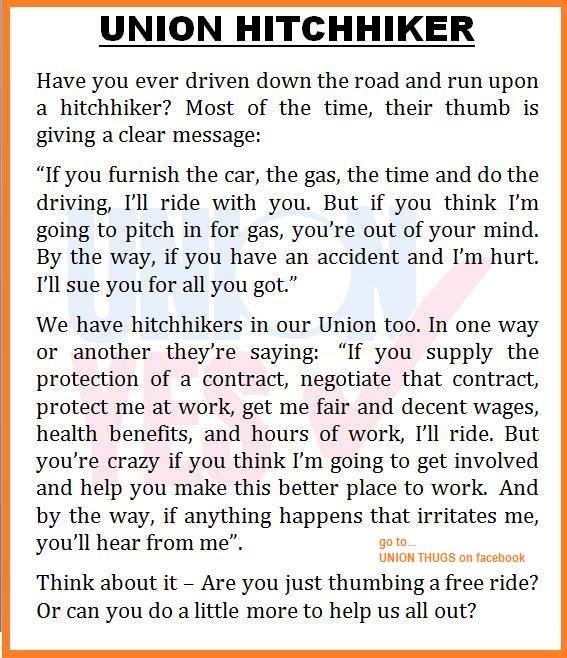We created this page so all members of our Local understand how this law works. Any member that chooses to not pay dues becomes a member NOT in good standing. These members DO NOT have voting rights. They will live by our contract, but they will have no say in it. They will also NOT vote on officers or any issue that is to be decided by the membership. Members NOT in good standing will NOT be eligible for scholarships, fellowship funds or gatherings, bereavement payments, retirement payments, military care packages or member in need contributions.
We WILL represent a member NOT in good standing to the best of our ability, We will follow the grievance procedure all the way through a top step meeting with the HR manager, if necessary to get the issue resoved. If the company denies the grievance at this point, where it goes from there is up to our District. The District determines which grievances go to arbitration. Will they use their resources for a member NOT in good standing? We honestly do NOT have an answer for that. We do know that the company is very aware during this procedure if grievant is a member in good standing or NOT.
When you became a Union member you signed a card that authorized payroll deduction of Union dues. On this card is the procedure to cancel this deduction, which would then make you a member NOT in good standing. The authorization card states, "This authorization shall continue in effect until canceled by written notice signed by me and individually sent to the Company and to the Union. This cancellation of authorization must be postmarked during the fourteen (14) day period prior to each anniversay date of the current or any subsequent Collective Bargaining Agreement, or during the fourteen (14) day perior prior to the termination of the current or any subsequent Collective Bargaining Agreement".
The following is a letter from President Steve Kotel about the right to work law.
As you may all know Our Governor Scott Walker has signed a bill making Wisconsin a Right To Work state.
Brief Overview of Law
The bill prohibits all unions (or any other person) from requiring, as a condition of employment, that any person:
- become or remain a member of the union as a condition of employment,
- pay dues or a fair-share obligation,
- pay to any other party or organization an amount equal to dues or assessments charged to union members,
-refrain from supporting or resign membership in a labor organization.
Any person who violates the right-to-work provisions are a Class A misdemeanor.
The bill amends the Wisconsin Employment Peace Act which establishes the framework for collective bargaining relationships between private sector employers and their employees. The bill does not affect the rights of public sector employees
Dues Checkoff and Referral Governed by Federal Law
A state right-to-work law does not impact dues checkoff agreements, since such agreements are governed by federal law. Similarly, the passage of right to work laws does not impact union referral systems, either exclusive or non-exclusive. This language refers to dues deductions from employees paychecks.
Unions Must Represent Non-Paying Bargaining Unit Members
Unions owe non-members a duty of fair representation, even to "free riders" in right to work states. You cannot refuse to represent non-payers or charge them special fees for representation that you provide to members for free.
As your president I can tell you we have many strong supporters of our union and hope that we all can stick together and stay strong. This attack on the middle class needs to stop! Unions are one of the last avenues to keep corporations and greedy politicians in check. Please get active in your union and stay a strong supporter so we can hold on to the benefits we struggled to keep for so many years and fight for the way of life we hope to leave behind for our children.
In SOLIDARITY FOREVER! Steve Kotel
Steve Kotel
President CWA Local 4671

